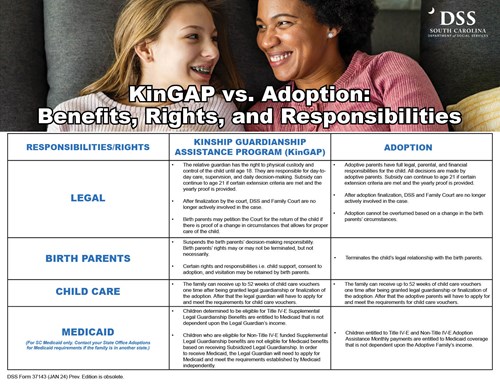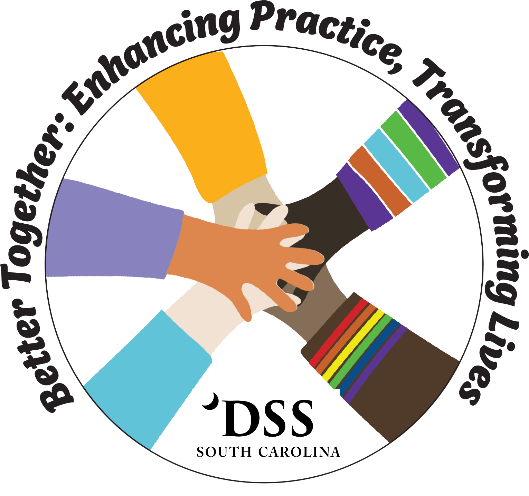Kinship Guardianship (KinGAP) Facts:
What is Kinship Guardianship?
Kinship guardianship is a judicially created relationship between a child and a responsible adult that is intended to be permanent and in which the guardian assumes many of the rights and responsibilities that customarily would reside with the child’s parents. Kinship guardianship can be a permanency option for a child or youth in kinship foster care when reunification with the child’s parents or permanency through adoption is not feasible.
In 2008, Title IV-E of the Social Security Act was amended to allow states to make guardianship assistance payments to kin or fictive kin who assume kinship guardianship of eligible children whom the kin or fictive kin have cared for as kinship foster parents.
What are the benefits of KinGAP?
The youth is able to maintain family and community connections while gaining the stability of a permanent home with a kinship caregiver who has demonstrated a commitment to caring for the youth permanently.
Kin GAP mimics the adoption assistance program, in that it is designed to facilitate a child’s exit from foster care to a permanent home and it provides financial assistance to the caregiver to assist the caregiver in meeting the child’s needs until the child reaches adulthood. However, unlike the adoption assistance program, kin or fictive kin can assume kinship guardianship and receive the associated assistance payments without termination of parental rights and adoption proceedings.
Kin or fictive kin who are providing kinship foster care are asked to help during a time of crisis in a child’s life and most kin or fictive kin are not expecting to care for the child on a permanent basis. Providing kinship guardianship assistance payments to these caregivers allows them to care for children long-term, thereby, providing the child with a permanent, stable, home in which to grow and thrive. Medicaid eligibility will be dependent upon the type of Subsidized Legal Guardianship the kin or fictive kin is receiving for the child. For more information, view the Kinship Permanency brochure here.
PLEASE NOTE: This program is not retroactive. Also, the child must have an open foster care case with SCDSS to qualify.
If you are caring for a relative other than your child who is under the age of 18 (e.g., your grandchild, niece, nephew, sibling, or other qualifying relative by blood, marriage, or adoption), you may qualify for federal TANF cash assistance on behalf of the child to help meet their basic needs. Learn about TANF child-only grants https://dss.sc.gov/assistance-programs/tanf/.
For additional questions, please email qalegalguardianship@dss.sc.gov.
Qualifying Criteria for KinGAP
Guardianship can be particularly suited to the permanency needs of an older child or youth under the following circumstances:
- Reunification and adoption have been ruled out as viable options.
- The child has been in a standard licensed foster home for a minimum of six consecutive months and there is a strong bond between the child and family.
- The child continues to benefit from the relationship with the birth family.



